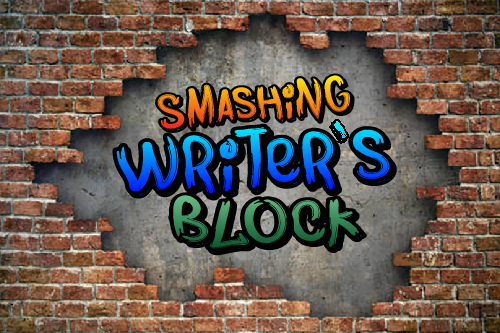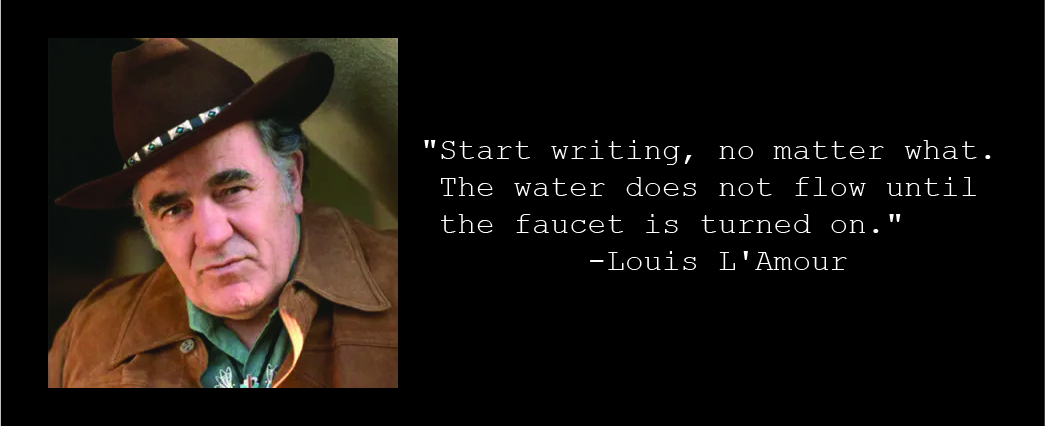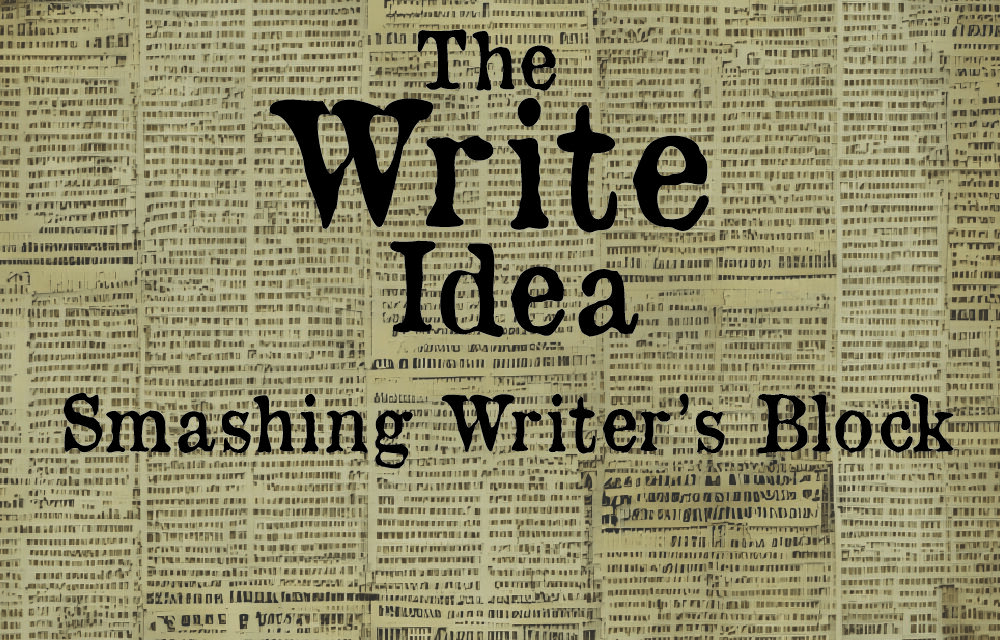
The Write Idea: Smashing Writer’s Block
As writers, we dread writer’s block. It happens when our ideas are gone, or we struggle with a certain writing section. The good news is that this is not a medical condition, nor is it fatal, and it can be remedied.
Here are a few ways to defeat writer’s block
Skip it.
If there is a certain section in the story that is difficult to write or the muse doesn’t seem to be in a talkative mood. Try skipping that section and continue on. Write something that does interest you. There isn’t a rulebook on how you have to write your novel. If your brain doesn’t want to work on chapter 3, it wants to work on chapter 5, then, by all means, move to chapter 5. Sometimes, this will unclog the block and allow you to go back later on, focus on it, rewrite it, and get to where you need to be.
Take a break.
You may have to walk away from it. Try exercising, take a shower, or get something to eat. With this approach, however, you have to be careful not to allow the break to stretch on for a long time. The point of writing is to write; if you take too many breaks or extremely long ones, you are procrastinating, not writing.
Write around it.
Sometimes, we get so tightly wrapped up in a project that we can’t make any headway. If this happens, try to write something else, anything else. Deliberately write nonsense. Put two fantasy characters on top of a skyscraper in New York. Or drop them out of a plane with only one of them having a parachute and no idea what to do with it. Write gibberish words. You don’t even have to go back and read it. Write stuff that you wouldn’t let anyone else read, then delete it, throw it away, or burn it. Writing something unrelated allows the brain to both loosen the knots and free up ideas.
Write differently.
Use a different writing style. If you write with a pen and paper, try writing on the computer. If you write on the computer, try writing with pen and paper. Maybe write in a different location or try talking into a recorder. Getting up and acting out the scene is a fun way to visualize what is supposed to go onto the paper. (This may get you some weird looks if you write in a public place.) We all have a favorite way of writing, which sometimes can make us feel stuck. By doing something different, we can continue to move in the right direction.
Power through.
When asked about writer’s block, Mark Douglas Jr., author of the Maddie Jones Mysteries, says,
“I may have an hour to write now. Sometimes, you have to force it and get it moving.”
There are times when we have to finish what we are working on before continuing. In this way, we have no choice but to power through. If this is the case, it may be possible to simplify the scene and continue.
Here are a few ways to avoid getting writer’s block in the first place.
Avoid Resarching when writing.
Let’s say you are writing along; the words are flowing, but you need the Chinese word for flower. The temptation is to do a quick Google search and find it. However, if you derail the writing train at all, you will find yourself an hour and a half later watching cat videos. You will wonder where the time went while your inspiration evaporates like ice cubes in a Florida summer.
Instead of going and researching, put a certain symbol, such as brackets with a note inside [Chinese word for flower], or four capital letter Qs (or some other indicator), and keep going. Once the creative spark is gone, you can search the document for them and then research the information.
Try not to edit until the writing is finished.
The idea behind this is to get to the end. For example, if the main character is an orphan at the beginning of your book, but halfway through writing, you decide it would be better if their mother was ill instead. Don’t waste time going back and changing everything, just start from this point forward as if the entire book was written with an ill mother. Then, once the book is finished, return and change the orphan parts. This keeps us from getting stuck in a cycle of perfectionism and allows us the freedom to continue writing. It will mean more work on the editing process, but there is something about being able to write “The End” that is extremely satisfying.
Whatever method you choose to smash writer’s block, remember it may not be easy, but it will be worth it.
(In case you are wondering the Chinese word for flower is Huā.)

About the Author

Jeff Robb – Spring 2024
Jeff is a third-generation Panama City local working toward his bachelor’s degree in Digital Production.




